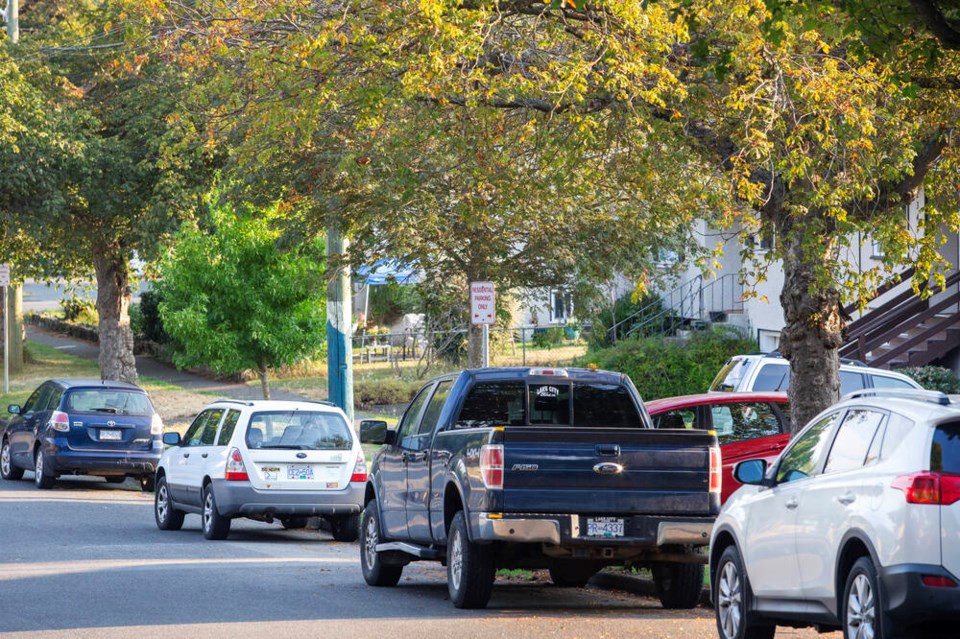Top Stories
Cities Shift Focus to Smarter Parking Solutions Amid Declining Driving

Recent trends show a significant shift in urban transportation dynamics, as cities are increasingly moving away from car-centric models. Data indicates that driving has peaked in many metropolitan areas and continues to decline, particularly in cities that prioritize non-auto modes of transit. This evolution in parking needs is prompting city planners to explore more innovative and effective parking solutions.
According to a report from the Institute for Transportation Studies, urban areas that invest in public transportation systems and pedestrian-friendly infrastructure observe a marked decrease in car usage. The report highlights that cities like Amsterdam and Barcelona have successfully integrated cycling and walking into their transport frameworks, resulting in a reduced reliance on personal vehicles.
Parking Challenges in Modern Cities
The traditional model of parking—characterized by vast parking lots and street-side spaces—no longer meets the needs of evolving urban populations. As fewer residents choose to drive, the demand for conventional parking spaces is declining, leading to underutilized areas. Additionally, the increasing popularity of ride-sharing services and electric scooters further complicates the parking landscape.
Cities are responding by rethinking their approach to parking management. Innovative solutions include the implementation of smart parking systems that utilize technology to optimize space usage. These systems provide real-time data on parking availability, allowing drivers to find spaces more efficiently and reducing traffic congestion.
In March 2024, the city of San Francisco will launch a pilot program aimed at testing smart parking solutions across several neighborhoods. The initiative seeks to integrate mobile applications that help users locate available parking spots and even reserve them in advance. According to City Transportation Director Sarah Johnson, this approach not only eases parking frustrations but also promotes the use of alternative transport methods.
Future of Urban Mobility
The shift towards smarter parking solutions reflects broader trends in urban mobility. As cities aim to reduce their carbon footprints and enhance the quality of life for residents, investing in sustainable transportation options becomes essential. This includes not only improved public transit but also better facilities for cyclists and pedestrians.
Moreover, data from the World Economic Forum suggests that cities embracing these changes can expect to see improved air quality and reduced traffic-related incidents. By prioritizing smart parking and alternative modes of transport, urban areas can create a more cohesive and environmentally friendly transport ecosystem.
In conclusion, the changing landscape of urban mobility is prompting cities to rethink parking strategies. As driving declines and non-auto modes gain traction, innovative solutions will play a crucial role in addressing parking challenges. The successful implementation of smart parking systems may well serve as a model for cities worldwide, paving the way for a sustainable future in urban transportation.
-

 Lifestyle1 week ago
Lifestyle1 week agoWinnipeg Celebrates Culinary Creativity During Le Burger Week 2025
-

 Science3 weeks ago
Science3 weeks agoMicrosoft Confirms U.S. Law Overrules Canadian Data Sovereignty
-

 Education2 weeks ago
Education2 weeks agoRed River College Launches New Programs to Address Industry Needs
-

 Technology3 weeks ago
Technology3 weeks agoDragon Ball: Sparking! Zero Launching on Switch and Switch 2 This November
-

 Science3 weeks ago
Science3 weeks agoTech Innovator Amandipp Singh Transforms Hiring for Disabled
-

 Technology3 weeks ago
Technology3 weeks agoWorld of Warcraft Players Buzz Over 19-Quest Bee Challenge
-

 Technology3 weeks ago
Technology3 weeks agoGoogle Pixel 10 Pro Fold Specs Unveiled Ahead of Launch
-

 Science3 weeks ago
Science3 weeks agoChina’s Wukong Spacesuit Sets New Standard for AI in Space
-

 Science3 weeks ago
Science3 weeks agoXi Labs Innovates with New AI Operating System Set for 2025 Launch
-

 Technology3 weeks ago
Technology3 weeks agoNew IDR01 Smart Ring Offers Advanced Sports Tracking for $169
-

 Technology3 weeks ago
Technology3 weeks agoGlobal Launch of Ragnarok M: Classic Set for September 3, 2025
-

 Technology3 weeks ago
Technology3 weeks agoFuture Entertainment Launches DDoD with Gameplay Trailer Showcase
-

 Technology3 weeks ago
Technology3 weeks agoHumanoid Robots Compete in Hilarious Debut Games in Beijing
-

 Science3 weeks ago
Science3 weeks agoNew Precision Approach to Treating Depression Tailors Care to Patients
-

 Technology3 weeks ago
Technology3 weeks agoInnovative 140W GaN Travel Adapter Combines Power and Convenience
-

 Business3 weeks ago
Business3 weeks agoNew Estimates Reveal ChatGPT-5 Energy Use Could Soar
-

 Health3 weeks ago
Health3 weeks agoGiant Boba and Unique Treats Take Center Stage at Ottawa’s Newest Bubble Tea Shop
-

 Science3 weeks ago
Science3 weeks agoNew Study Reveals Surprising Impact of Gratitude on Helping Behaviors
-

 Technology3 weeks ago
Technology3 weeks agoDiscover the Relaxing Charm of Tiny Bookshop: A Cozy Gaming Escape
-

 Technology3 weeks ago
Technology3 weeks agoBorderlands 4 Promises Massive Changes with 30 Billion Guns
-

 Technology3 weeks ago
Technology3 weeks agoQuoted Tech Launches Back-to-School Discounts on PCs
-

 Lifestyle3 weeks ago
Lifestyle3 weeks agoVancouver’s Mini Mini Market Showcases Young Creatives
-

 Education2 weeks ago
Education2 weeks agoAlberta Teachers’ Strike: Potential Impacts on Students and Families
-

 Business1 week ago
Business1 week agoZellers Set to Return to Edmonton Mall in Former Hudson’s Bay Space










